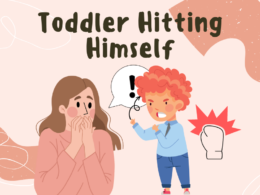Playing With Poop Is Normal for Babies – What About Toddlers?
First, you need to know that fecal smearing is normal for babies. They might take a curious sniff of their diaper or even put their hands in it and smear it around. Babies learn about their environment via touch and smell, and the texture and smell of poop is novel to them. Regardless of being autistic.
However, by the time they reach toddler age, most children will have outgrown this phase. When a child turns 2 or 3, they start distinguishing between cleanliness and messiness. They also develop a sense of shame and understand that certain behaviors are inappropriate in public. So, is your toddler playing with poop a sign of autism?
4 Reasons Why Your Toddler Might Be Playing With Poop
There are a few reasons why your toddler might engage in this behavior, even though they know it’s not socially acceptable. We’ll go over them below.
- Your toddler might be suffering from constipation. When poop is hard to pass, it can be painful for kids to go to the bathroom. As a result, they might dig around in their bottom in an attempt to find relief.
- Your child might be ready for potty training. Some kids will start to take their poop out of their diapers because they don’t like the sensation of a dirty diaper. In that case, potty training might be right around the corner.
- Your toddler could have behavioral problems. If your toddler is acting out in other ways (hitting, biting, throwing tantrums), they might also play with their poop as a way to seek attention. In that case, ignoring the behavior is usually the best course of action.
- Your child might have autism or sensory processing disorder. Kids with these disorders can be hypersensitive to touch, smell, and texture. The sensation of playing with poop might be calming or pleasurable for them.
So, is a toddler playing with poop a sign of autism? It can be, but it doesn’t necessarily mean that your child has autism. If you’re concerned about your toddler’s behavior, it’s always best to talk to a doctor or professional.
What to Do If You Suspect Your Child Has Autism
If you think your toddler might have autism, the first step is to talk to your doctor. They can refer you to a specialist for an official diagnosis. There are a few things you can do to help your child, even if they haven’t been diagnosed with autism yet. Try the following tips:
- Encourage your child to use their words to express themselves. This will help them communicate their needs without resorting to behaviors like playing with poop.
- Model appropriate social behavior. If you don’t want your child to play with their feces, make sure you’re not leaving other messes around the house.
- Provide toys like play dough or kinetic sand. These can help your child satisfy their need to touch and smell different textures.
- Establish a daily routine. This will help your child feel safe and secure, which can reduce problem behaviors.
- Talk to a therapist. A professional can help you and your child manage any behavioral issues.
Conclusion: Is Your Toddler Playing With Poop a Sign of Autism?
In conclusion, is your toddler playing with poop a sign of autism? It might be, but there are other potential explanations as well. If you’re concerned about your toddler’s behavior, talk to a doctor or professional for guidance. Ruling out any medical causes is always the first step. After that, you can start working on behavioral management strategies.
What are your thoughts on this topic? Share your experiences (or advice) in the comments below!
Similar Posts:

















